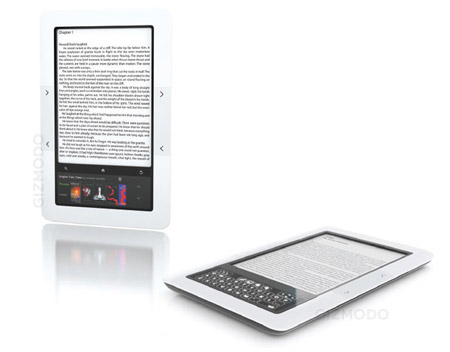It’s not often that I walk into a store, buy something, then feel guilty. But it happened to me again tonight.
Barnes and Noble is a favorite hangout for me and the kids, and we often browse there after grabbing a mocha in their in-store Starbucks. It’s a great way to spend an hour relaxing in pleasant surroundings, and I’ve definitely dropped a fair amount of cash there in the process.
But tonight, after I sipped a mocha from the B&N Starbucks and browsed through Tom Vanderbilt’s new book, “Traffic: Why We Drive the Way We Do (and What It Says About Us)“, I did something that’s become all-too frequent a habit of mine: I comparison shopped it on Amazon.com via my iPhone to see how the store price ($16 in paperback) stacked up. Given my Barnes & Noble membership card, my store price would have been $14.40 — but then the ridiculous Santa Clara County sales tax of 9.25% kicked in, raising it back up to $15.73 again.
In comparison, Amazon.com had it for $10.88, with no sales tax and free shipping (I also belong to their Amazon Prime program which gives me “Free” 2nd day shipping on most items for a yearly payment of about $70). “So,” I thought, “there’s my decision. Is getting it now vs. two days from now worth $4.85 to me?” And given how busy my schedule was, the answer was almost certainly, “No.”
But Barnes and Noble’s case got worse mere moments later when I realized that it existed in a Kindle edition for $9.99–I could be reading it in a minute or two, with no tax, shipping, or even a book to shelve or dispose of when it was all done with (I doubted I could recoup much or any of the cost by selling the paperback later).
“But wait!” I thought a moment later. “Here I am, sitting in this nice local store. Shouldn’t I occasionally spend $4.85 to help these guys out from time to time?”
A brief pause here to talk about my own personal shopper psychology: In our house, money spent on essentials and building for the future is OK–whether that means school for the kids, server upgrades for the business, or an appropriate business wardrobe for Carolyn (who just went back to work). On the other hand, things like books about traffic jam psychology, tin robots, Lego sets, etc. fall into the “luxuries” category, and there’s only so much of that I can do before the guilt kicks in pretty good. I love my non-essentials, but I can’t go nuts buying them. And I usually comparison shop.
So here’s my problem: I love Barnes and Noble, and if my $4.85 means the difference between keeping them around and not, I’m happy to spend it on them. But I also admire and respect Amazon.com. They run a great business, and the Kindle is a massively innovative (and disruptive!) piece of technology. The harsh reality is that if Barnes and Noble (or anyone else) wants a customer’s business, they have to get it by offering the superior value proposition–not just by appealing to the customer’s sense of guilt or charity.
But how does a physical book store–even a great one like Barnes and Noble–compete in a world where someone can get interested in a book by browsing it over a cup of coffee in the store, but buy it for less from a competitor before he even leaves the premises? Sometimes the physical properties of the book are enough–whether it’s color, binding, feel, etc. which can’t be easily copied digitally. But all-too-often, the simple answer is, “they can’t.”
So it’s with huge relief that I note that Barnes and Noble appears to be going on the offensive on their own, and engaging on the digital front in the war for readers with their own e-reader device designed to best the Amazon Kindle. If rumors are true, the device may even be revealed tomorrow, and it ups the ante by using twin screens (including a color, touch-sensitive one), and an aggressive price point. If they can also do battle on the content side, offering up similar offerings at similar prices, I’d be only too happy to jump on board. (Picture from Gizmodo).

(And yes, using the peculiar logic of geeks and small businessmen, it’s not a personal expense to buy a $259 e-reader if it turns out that we can also use it to view ComicBase reports. Then it’s an exploratory business development purchase, and comes out of the guilt-free “business” budget instead of the “luxuries” budget where a $259 purchase would cause me more than a little pause. Heck, look how I worried over $4.85 for a paperback!)
So bring it on, Barnes and Noble–I’m cheering for you.
And Amazon, I’m cheering for you too! Not to mention Apple, Microsoft, and anyone else who wants to engage in another round of the most amazing game in the world: Capitalism.
The rules are simple: You have to make something cool that people want more than they want to hold onto their money–i.e. you have to invent an entirely new thing, or beat the competition in some way that matters to the customer. And when the competition fights back with a new innovation of their own, you have to raise the stakes again with your own innovation, make your old thing more affordable, or quit the game. Force of any kind is considered cheating, especially when you attempt to get the government to use force on your behalf. Players can retire anytime they want, but the game itself never ends. And everyone wins except the quitters.

Pingback: Barnes and Noble, You’re Breaking My Heart Here! « Release Notes